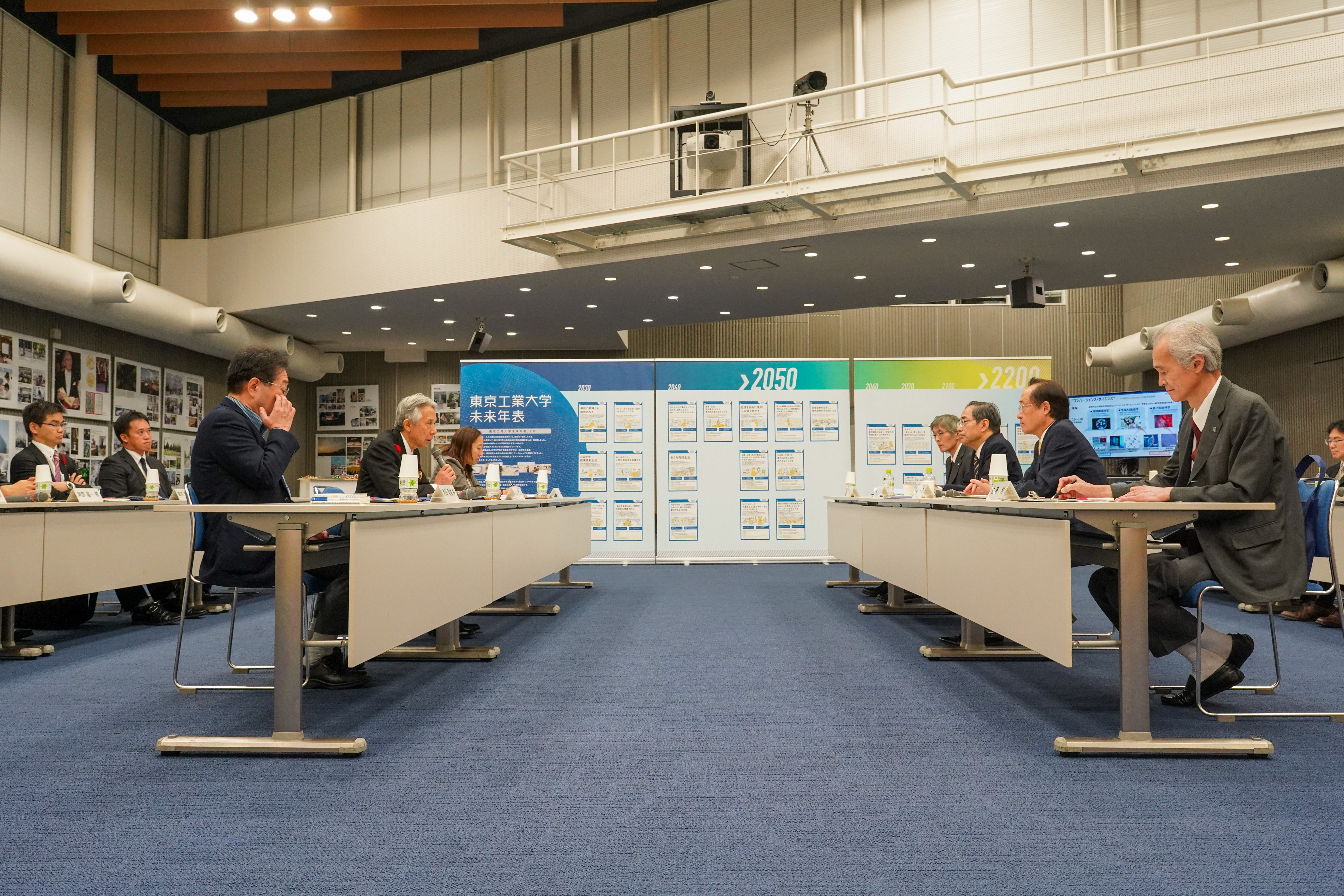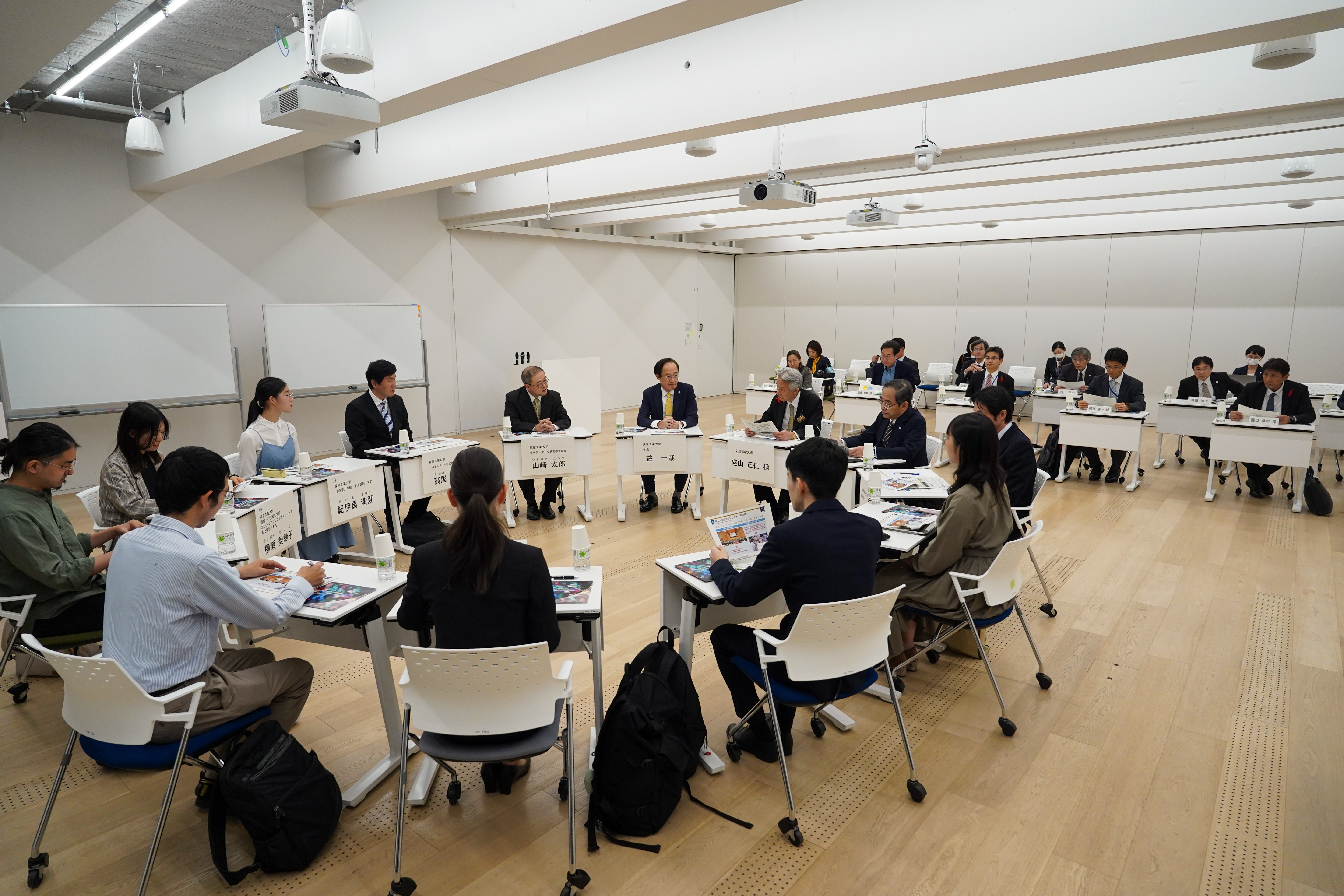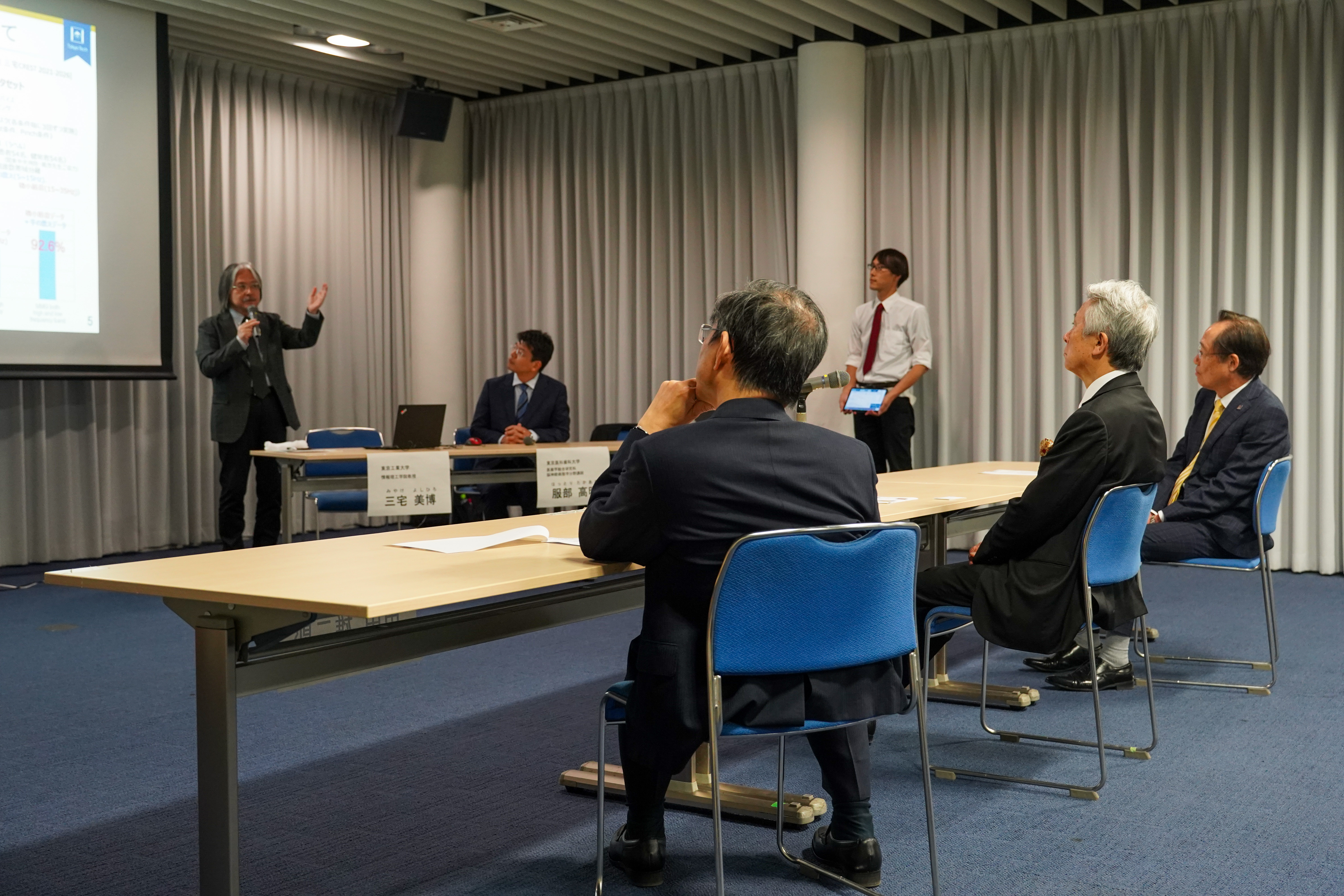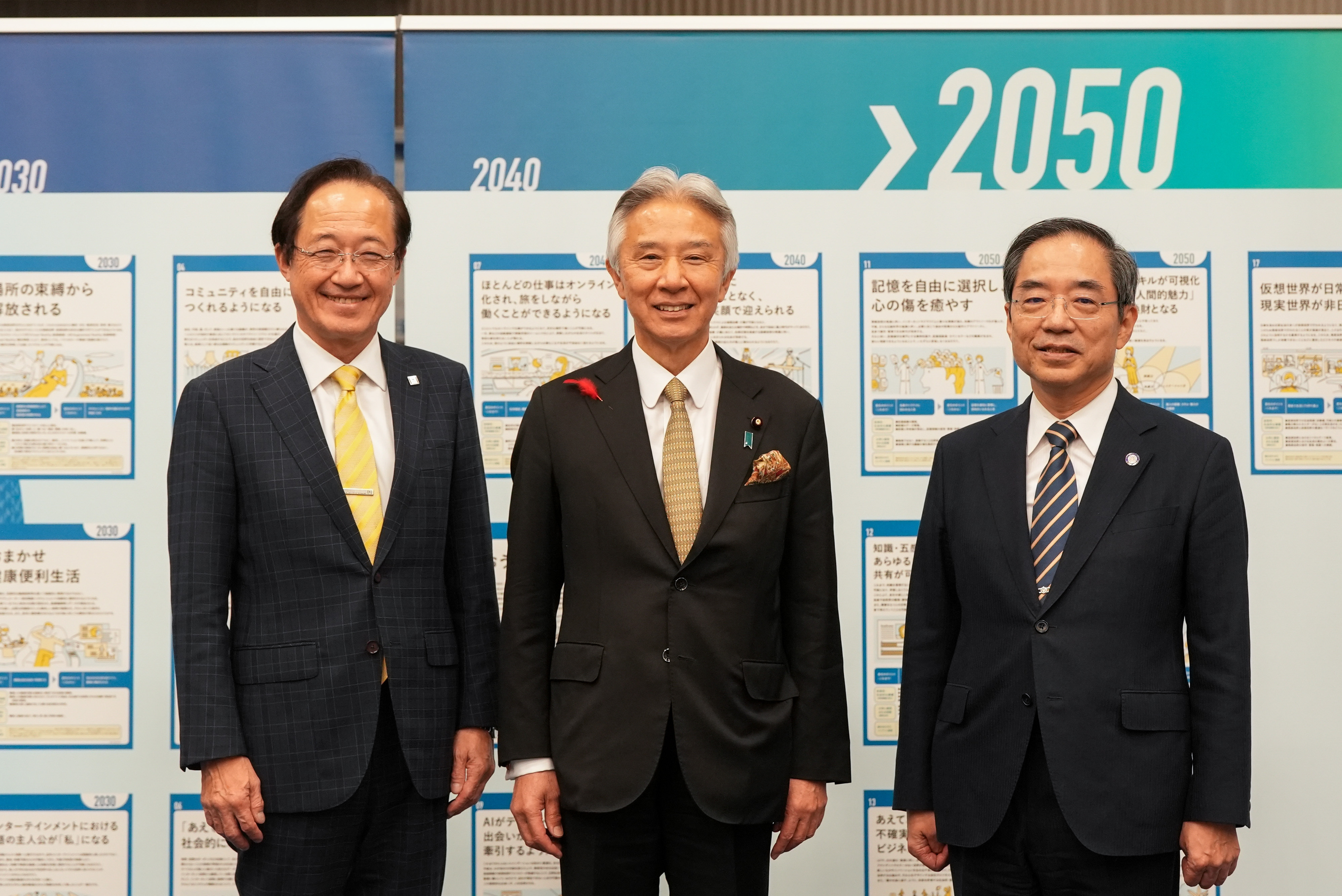MEXT Minister Moriyama visits Ookayama Campus regarding planned merger between TMDU and Tokyo Tech

Minister Moriyama (left, center) exchanging views with TMDU President Tanaka and Tokyo Tech President Masu
Subsequently, Minister Moriyama engaged in a discussion with seven students from TMDU and Tokyo Tech. The students expressed their expectations for the university merger and shared their experiences with liberal arts education. They mentioned how engaging in discussions with members from various fields allowed them to form deep human connections, to proactively learn knowledge they lacked, and to discuss and learn collaboratively with students from different fields of study; skills they hope to apply in multi-professional collaborations once they enter society. Minister Moriyama expressed his admiration for the students who spoke with aspiration and confidence, stating that liberal arts plays a crucial role in connecting people while maintaining expertise. He emphasized the importance of "human skills" and the ability to be someone others would want to meet again, expressing his hope that they would become the personnel who would support Japan.

Minister Moriyama speaking with TMDU and Tokyo Tech students.

Minister Moriyama asks questions after listening to an explanation about collaborative research using ultra-high-sensitivity acceleration sensors.acceleration sensors.
Furthermore, at Tokyo Tech Front, Lecturer Takaaki Hattori from TMDU, Professor Yoshihiro Miyake, and Assistant Professor Hirotaka Uchitomi from Tokyo Tech presented their joint research on using ultra-sensitive acceleration sensors for early-stage diagnosis of Parkinson's disease. Minister Moriyama observed a demonstration of how the sensors are attached to the body and gait analysis, expressing a strong interest in the ongoing collaboration between the universities towards clinical application. He conveyed high expectations for the project's development, particularly in terms of medical insurance coverage and diagnostic support.
Before concluding his visit, Minister Moriyama joined a roundtable discussion with Presidents Tanaka and Masu to discuss their expectations for Institute of Science Tokyo (tentative name) which will be created from the merger of the two universities. They also shared slides with the minister regarding the convergence science that both universities aim for, and introduced the Tokyo Tech Future Chronology, a collection of desirable future scenarios envisioned by the Laboratory for Design of Social Innovation in Global Networks (DLab) of Tokyo Tech.
Minister Moriyama expressed his surprise and respect for the various visionary initiatives, promising to address what can be done to meet everyone's requests. He also encouraged the universities to become a leading model for Japan in this era where connections between academia are necessary, and to enhance Japan's competitiveness and potential.
Before concluding his visit, Minister Moriyama joined a roundtable discussion with Presidents Tanaka and Masu to discuss their expectations for Institute of Science Tokyo (tentative name) which will be created from the merger of the two universities. They also shared slides with the minister regarding the convergence science that both universities aim for, and introduced the Tokyo Tech Future Chronology, a collection of desirable future scenarios envisioned by the Laboratory for Design of Social Innovation in Global Networks (DLab) of Tokyo Tech.
Minister Moriyama expressed his surprise and respect for the various visionary initiatives, promising to address what can be done to meet everyone's requests. He also encouraged the universities to become a leading model for Japan in this era where connections between academia are necessary, and to enhance Japan's competitiveness and potential.

Minister Moriyama (center), President Tanaka (right), President Masu Tokyo Tech (left) in front of Tokyo Tech Future Chronology
